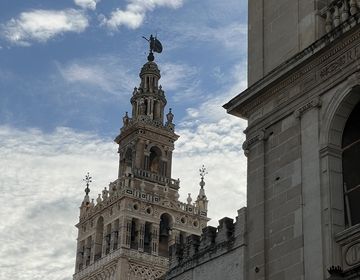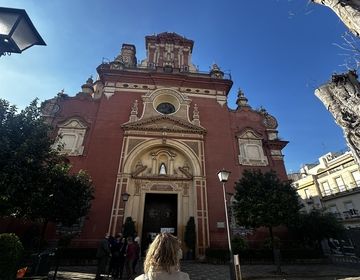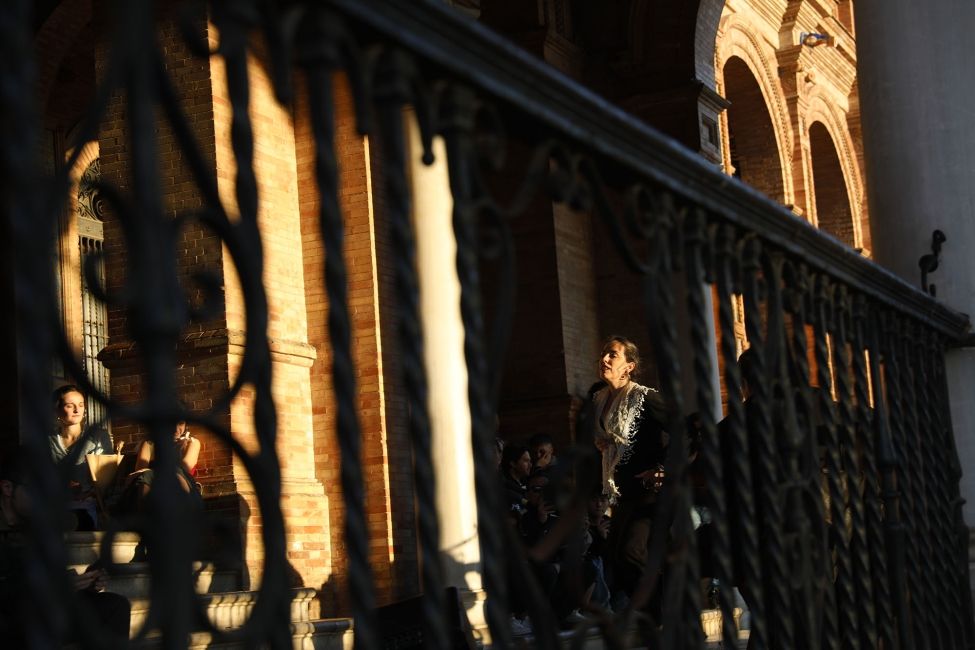Intercultural Growth: Trials and Tribulations of Adjusting to Life Abroad
By: Joseph Decilos
Upon arrival in Sevilla, one is overwhelmed with the traditional culture, and the myriad of history in every inch of the city. Surrounded by fragments of this history I found it hard to fully comprehend the past of Sevilla without recognizing its holistic impact. Though generations ago, the colonization of Mexico still proves to have ramifications on the perception of Latinos in Spain and also the killing of Aztec culture. Many would find it simple to leave this history in the past, but doing so further eradicates the motivations of conquest and its implications. However from my initial exposure to the culture I was afraid of the cultural acceptance, and my place in Sevilla.
As the semester went on and I warmed up to the city and the people of Sevilla, I reflected on the teachings in Intercultural Communication—specifically the ideologies of stereotyping. Though the Spanish have an extensive history there are many Spaniards I have met that genuinely denounce the notions of colonization present in their past. Placing everyone from a country into a singular box and demonizing them for past actions isn't fruitful in creating relationships. Putting my own barriers down and being able to relate more with the Spanish populace around me allowed me to compare and contrast my home and Spain. I referenced Making A World of Difference. Personal Leadership by Barbara F. Schaetti. In the reading are Schaetti lists six practices in which to build upon personal leadership in international contexts. Numbers four and five reads, “emphasizing self-reflection” and “choosing our internal state of being.” Which I find imperative to consider with my time abroad. In self-reflecting and being able to adapt my initial stereotypes I have been able to connect more with those around me whilst still being culturally aware.
Cultural literacy comes with education, practice, and relation. Reflecting on the definition put forth by Michael Hammer, author of The Intercultural Development Inventory. He elucidates the tools needed to increase understanding when in a situation like studying abroad. He states, “Building intercultural competence involves increasing cultural self-awareness; deepening understanding of the experiences, values, perceptions, and behaviors of people from diverse cultural communities; and expanding the capability to shift cultural perspective and adapt behavior to bridge across cultural differences.” I found that when I began to analyze the structures in which both cultures take on and the implications of both.
Coming from an individualistic culture I found it hard to digest the emphasis on collectivist culture at first. I found myself in an out-group due to the cultural bonds already prevalent in Spanish groups around me. For the first time as a student here I felt left out and as if everyone else was in the in-group while I wasn't. Seeing Spaniards wearing sombreros and Mexican wear was honestly offensive to me, but without communication and cultural competence, I can't expect these people to change their ways. This is a two-way street—where sometimes people asked me to explain further about our morals and ideas in the US on certain topics. It is more beneficial and informative to approach intercultural communication in this way.
For me, cultural self-awareness has informed my intercultural competency by forcing me to not make assumptions or get angry when people say certain things about my culture. Rather I have used the readings and lectures in my CIEE International Communications course to further build understanding between both cultures. There have been situations where I have had to act as a representative of the Latin or LGBTQ+ community and even America as a whole which can be tiring but helps individuals to be able to reach the same page. Putting a name to cultural ideas like perspective shifting, and cultural empathy has helped me have a better ability to learn how other cultures in Europe see the world. For me, I have been conditioned to act as an individual, but I have been able to live a more collectivist lifestyle here in Spain and have been able to see the appeal. Though it took three months for me to finally find some belonging I have a newfound respect for learning about other cultures and the tools in which I need to understand them more deeply.
I have learned to put my stereotypes to the side and pushed myself to look deeper into the true psychology of why people act the way they do. In different cultures, there are so many factors that can influence the way one thinks and the readings all support this ideology. My cultural literacy has always been informed by a diverse range of individuals in the United States. Yet, coming to Spain I have found diversity in Nationality which further pushed my personal understanding of other cultures through CIEE. I appreciate the ups and downs of my time in Spain. I have learned more about the stereotypes placed on my people and the ones I have placed on Spaniards. My intercultural competency development has only furthered with my enrollment in this course and my interaction with the individuals around me.
Related Posts

Running in Sevilla!
By: Olivia Benedict Moving to a new city can be exciting for runners, with so many new routes to post about on Strava. But, if you’re like me, sometimes it... keep reading

5 Essential Tips for Living with a Host Family in Spain
By: Abigail Walz Living with a host family is one of the most unique and rewarding aspects of studying abroad. It offers an incredible opportunity to immerse yourself in the... keep reading

The Gift of the Homestay: The People Make the Place
By: Cate Cannon Hi! My name is Cate Cannon, and I am currently studying abroad for the Fall 2024 semester in Sevilla, Spain. I chose this location because of the... keep reading

